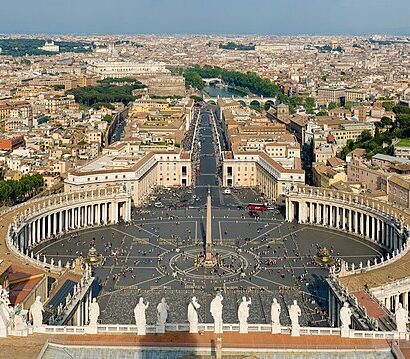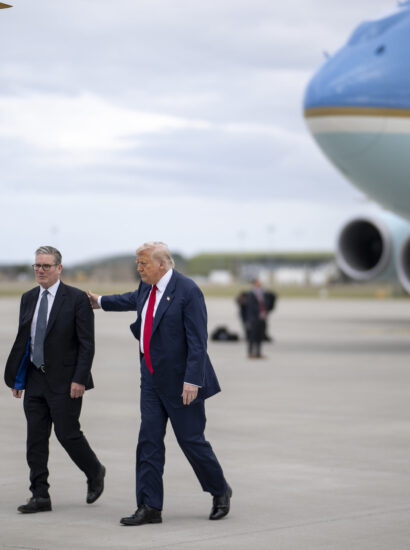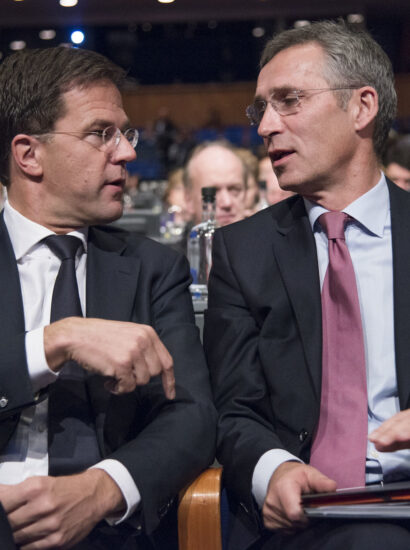It was a long time ago, but some may remember how divided the European Union was in the early 2000s over support for the US invasion of Iraq. French President Jacques Chirac, already the voice of the camp opposed European involvement, lashing out at the EU’s new central and eastern European member states, saying they had “missed an opportunity to remain silent”. Some twenty years later, several lectured Central and Eastern European countries reacted in a way similar to Chirac’s reaction to a controversial statement by French President Emmanuel Macron, which suggested that the European Union’s strategic autonomy should be there to counter the United States.
Macron On The Edge Again
This is not the first time that Macron has ruffled feathers among his own allies with a less than diplomatic statement: he has previously provoked similar disapproval with his widely held position on taking account of the interests of aggressor Russia. After being ambushed, the French head of state has now tried something similar with China, which he recently visited, when he said that the EU should not get involved in the US-China tug-of-war over Taiwan.
It is not as if there are not European interests in this remote part of the world, just think of one of the busiest maritime trade routes, or the fact that 90% of the semiconductors used by European industry currently come from Taiwan, which is under threat from China.
But, let us now turn away from the criticism of French foreign policy rhetoric in the De Gaulle tradition and concentrate on the substance. Indeed, Emmanuel Macron’s words about Europe’s strategic autonomy take on a different meaning when the occupant of the White House is called Donald Trump rather than Joe Biden. It is worth remembering that it was his presidency that, a few years ago, made Europeans realise that they could not always rely on the goodwill and protection of the United States. It is therefore better for them to take their destiny into their own hands. That is to say: take care of their own security.
United States – With And Without You
This does not mean a strategic break with the US, which would be a serious and irresponsible step.
As the example of Ukraine shows, without the United States, the EU would not be able to face the challenges of a new era marked by the return of geopolitical rivalry.
Europe and America are dependent on each other precisely to counter China’s growing strength and ambitions to become a world power, but this does not preclude their interests from intersecting from time to time, as in the recent case of the Inflation Reduction Act (IRA), which the EU considers discriminatory.
Ushering In The European Union’s Strategic Autonomy
But Europe’s “open strategic autonomy” is far from being just about this, it is at least as much about its ability to adapt to a new global economic and trade environment that subordinates multilateralism to geopolitical interests. A new face of globalisation in which economic openness is replaced by protectionism and fragmentation of the world economy, for who knows how long.
As the EU is the biggest beneficiary of the current liberal and open world trade model, it will inevitably be the main victim of the new trend.
In this context, some European strategists see it as inevitable that the EU should adopt a new growth model based on satisfying domestic demand rather than export orientation. To do so, it must build an industrial base capable of producing new clean technologies (clean tech), reduce its dependence on external suppliers of raw materials (see the negative effects of its former dependence on cheap Russian energy imports), trade with others on the basis of reciprocity and actively seek new types of partnerships, especially with the global South, as an alternative to aggressive Chinese expansion.
Laurence Boone, French Minister for European Affairs, underlined at a debate on strategic autonomy in Brussels that in Africa, one in two major infrastructure projects are currently being implemented by Chinese companies and one in three are financed by Chinese banks. Europe’s response to this could be the Global Gateway initiative, which seeks to offer the developing world a human and sustainable alternative to China.
Task Number One For The EU: Define China And Itself
The success or failure of the EU’s strategic autonomy will depend to a large extent on the outcome of the war in Ukraine and its ability to develop a coherent and workable doctrine on China.
The current EU strategy describes China as a partner, an economic rival and a systemic rival. The simultaneous application of these three principles is not easy for anyone, least of all for a club of 27 members with independent foreign policies and interests.
However, the EU has shown, through a series of crises, that it can take up the gauntlet, even if the punch needs to be improved. The European Union has made clear that it wants a balanced trade relationship with Beijing and to take stronger action against Chinese influence both inside and outside its borders. In the war in Ukraine, Europeans and allies have drawn a red line for Beijing, which is expected not to supply arms to Moscow.
Achieving the coveted open strategic autonomy is a circuitous route for the European Union, whose project is ultimately about preserving its own democratic political, economic and social model. This will trigger changes in many policy areas in the coming years.
Among these, the gradual construction of a political union of defence, complementing soft power with hard power and, optimally, in line with NATO, will be a prominent feature.
Another keyword will be to improve competitiveness, which will require more innovation than at present, an industry tuned to the green and digital transition, and a reduction and rebalancing of Europe’s external dependence on raw materials. These ambitions will require a lot of capital, so the EU cannot delay any longer in creating a capital union, introducing new forms of financing alongside banks, similar to the US market.
The EU will continue to be a bastion of open trade in the years ahead, but in a much less naïve way than before, equipped with effective market protection instruments.
The EU’s external development policy also needs to be rethought, with aid better aligned with its strategic interests. Part of the equation will be the enlargement of the EU to include the Western Balkans and, to the east, Ukraine, Moldova and possibly Georgia. One consequence of the war in Ukraine is that EU enlargement has once again become a strategic issue.
However, the admission of new members will require significant internal reforms by the EU in order to remain viable.
The accession of Ukraine, with its 40 million members, will have serious financial, decision-making, balance of power, agricultural and institutional consequences for the EU. In return, it has much to gain and can be an even more respected and attractive partner in the eyes of the outside world.







[…] defending its own political, economic and social model and even its territory in the future. Open strategic autonomy, reducing or eliminating dependence on Russia, China and other countries for strategic raw […]